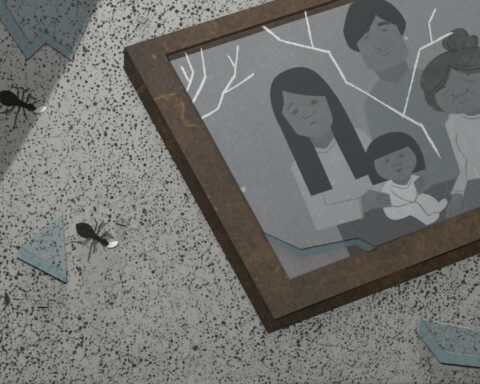Night School
(USA, 85 min.)
Dir. Andrew Cohn
Greg Henson, Shynika Jakes, and Melissa Lewis are going back to school. They’re freshmen once again as they hit the books in search of a second chance at life. The trio are just three among many students who were part of the inordinately high dropout rate within Indianapolis’s education system. Going back to class isn’t easy for these students aged 31, 26, and 52, respectively, and Night School follows the characters for one year as they pursue their studies. The road to redemption, and to a better life, is easier said than done in this tough but inspiring story of second chances.
The three students aren’t pursuing a GED [equivalency diploma], though. They’re going back to school for a high school diploma proper and that pursuit is a major commitment for anyone working a job, supporting a child, or both. Night School is a fine companion to this year’s Hot Docs standout Step as it intertwines a personal study of individuals charting their paths through America’s flawed education system with the larger social dynamics of race, poverty, violence, and gender that shape a student’s future. It’s not as fluid or aesthetically sophisticated as Step is, but the raw verité style of Night School leaves no bones about the path on which the characters find themselves.
Night School tells the story of the students who quit high school to sell drugs, to choose between studying and providing for their kids, or to find something that seemed like a better fit than life in the classroom, among other reasons that none of us can judge without being in the same position. Director Andrew Cohn (ESPN’s 30 for 30 series) looks beyond the statistics and puts human faces on the number of Americans who struggle to advance due to circumstance or lack of opportunity. The stories of Henson, Jakes, and Lewis are specific, but they aren’t unique as people struggle with school in an early stage of their lives and confront the consequences of dropping out when they’re mature.
Henson, for example, is a single father who learns that his cute daughter Khloe is epileptic during the course of the film. Khloe’s seizures add to the urgency of his effort to get his diploma: medical care isn’t cheap in the States and Henson needs to earn a fair living to give his daughter the best care possible. The film follows his effort to expunge pending charges on his record while also trying to improve his resume for prospective employers with the help of a diploma. The bureaucratic obstacles he faces are eye-opening examples of a system with a bias for recidivism over redemption. His situation already leaves him with some major baggage in the workplace, since he’s a high school dropout, has a criminal record, and experiences racial discrimination as a black male. “Three strikes,” as he aptly puts it to one of the determined teachers. (Cohn’s doc shows the devotion and investment of the teachers, but smartly keeps its focus on the students.)
Jakes, on the other hand, is still young at 26, but as she explains in an emotional confession, she thought her life would have more structure by now. She does shift work at the local Arby’s on top of her school, but even then, she remains homeless and sleeps in her car when she’s maxed out waves of couch surfing favours. Add to this stress the fact that she’s underpaid and treated unfairly by her boss for prioritising school over work, and she has a heavier burden that many dropouts in the service industry face as they survive on minimum wages that don’t even pay the rent. Jakes’ confidence soars as Cohn parallels her efforts in school with her growth in the workplace as she joins a fight for better wages in the fast food industry and becomes a leader. Her climb is remarkable.
Lewis, finally, sees the high school diploma as a chance to pursue the life she never had. After dropping out of school to support her kids, Lewis’s career path sounds something which Jakes could stay on if she didn’t enroll. Her challenge comes in regaining her confidence in the courses and subjects that she hasn’t encountered for decades. Algebra becomes Lewis’s biggest obstacle on the path to her diploma—she just can’t seem to pass a test despite the long hours of studying and seeking assistance. Her depression and, ultimately, her determination guides the film to its final arc as she refuses to quit a second time. It’s an emotional moment as we see Cohn’s Night School rallying for its underdogs.
These stories are compelling tales of perseverance and a call for America to overhaul both its educational system and way of thinking to enable equal opportunities. By zeroing in on three students, rather than trying to assemble a panoramic class photo, Cohn lets these characters thrive as intimate and relatable subjects whose struggles are like those too many Americans face as they try to advance in their lives and careers. Henson, for example, still hangs out with his old crowd and Cohn gets a few shots of the father sipping liquor straight from the bottle or sitting with friends rolling a smoke. In the film’s most powerful sequence, Henson rushes to the hospital to be with his brother who was shot just moments after speaking with him on the phone. In moments like these, Night School shows viewers the impact that a mere postal code, which represents a poor neighbouhood, has in determining someone’s path. As the characters strive to escape the social and systemic barriers that led them to leave school in the first place, Night School portrays a nation in need of some serious schooling.
Night School is now playing in New York.











